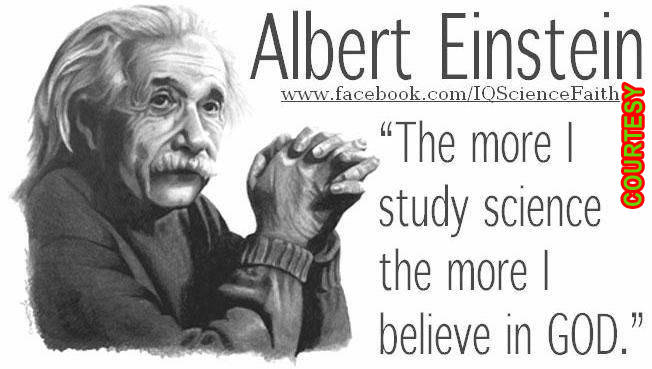
Science is often defined as the pursuit of knowledge
Science is often defined as the pursuit of knowledge and understanding of the natural and social world following a systematic methodology based on evidence. It is a system of acquiring knowledge based on empiricism, experimentation, and methodological naturalism, as well as the organized body of knowledge human beings have gained through such research.
Scientists maintain that scientific investigations need to adhere to the scientific method, a process for evaluating empirical knowledge that explains observable events without resources to supernatural notions.
The Science of Nature
According to Toby Huff, there is no true word of science in Arabic (the language of Islam) as commonly defined in English and other languages. In Arabic “science “can simply mean different forms of knowledge. This view has been criticized by other scholars.For example, according to Mustafa Iqbal, Huff’s framework of inquiry is based on the systematic model of Robert Merton who had made no use of any Islamic sources or concepts dealing with the theory of knowledge or social organization. Each branch of science has its name, but all branches of science have a common prefix, ilm. For example, physics is more literally translated from Arabic as “The science of nature,” ilmi tibia athematic” as the science of accounts” ilm il Hisaab”.Religious study of Islam is called “science of religion” (Al -Dinniya–il –ilium) using the same word for science as “the science of nature. “According to the Hans where dictionary of Arabic, while ilm is defined “Knowledge learning lore” etc., the word from science is the plural form so the” kulyati-il –ilium” the faculty of science of Egyptian University, is literally the faculty of science.
Islam and acquisition of knowledge:
Islam unlike modern Christianity, does not differentiate b/w matters of state and matters of “Religion”. In this respect, Islam should not really be regarded as a religion for it is a total system. It is religion, a culture, a civilization –all at once and as a holistic system it touches every aspect of human endeavor. Islamic ethics and values permeate all humans actively, It follows than that Islam must have something to say about science knowledge to say about science and knowledge. As Islam does not permit priesthood or a religious hierarchy .it commands each and every believer to seek knowledge and be aware of his obligations and responsibilities to society as well as God. Thus in Islam the knowledge is both personal and social obligation .There are scores of verses in the Quran advising the faithful to seek and advise knowledge necessary for a better understanding of the divine message as well as the universe and everything contained in tithe first revelation to Prophet Muhammad was a command from God to read and write to gain knowledge: Read: In the name of thy lord who created, Created Man of a blood-clot Read: And thy Lord is the most Generous who taught by the pen, Taught men, that he knew not.
Quranic verses on some scientific topics:
For Muslims, the sources of wisdom and guidance, of course, the Quran. It is like a “guiding Light” to be used in following the right path to knowledge and salvation. Although the central theme of the Quran is the Almighty and His Creation, it touches on the number of scientific themes. These themes are a reminder to the reader that God has given us all the abilities and the necessary faculties to understand and evaluate the natural phenomenon: “One of Allah’s sign is the creation of heaven and the earth and diversity of your tongues and colors: most surely there are signs in this for the learned.
There are accurate Quranic accounts and interpretations of several scientific principles and disciplines such as cosmology, astronomy, agriculture, anatomy, geology, mineralogy, met allergy, meteorology, agriculture, dairy farming, food preservation rationing and storing.
Some of the specific topics mentioned in the Quran are:
The nature of life itself. (Biological Sciences)Heaven, sun, moon, stars, day, year (Space and planetary sciences)Wind, thunder, lightning, clouds, rain (meteorology)Ocean, river, streams and springs (water resources)Plant, trees, vegetation (plant sciences)Domestic animals, like cattle, camels, horses, sheep and goat (Livestock, dairy sciences)Mosquitos, lotus, ants (entomology)There are chapter named after animals and insects such as (surah naml insects),an abut(spider), nabal(bees) and Baqarah(cow). “And the heaven –we built it with might, and we extend it wide. And the earth we spread-we spread it forth, oh excellent smoother: and of everything created we two kinds, happily you will remember.” After cosmology, meteorology and biology get the most frequent mention in the Quran, “No creatures is there crawling on the earth, no bird flying with its wing, but they are nations like into yourself”.
These few examples show that the Quran addresses many topics of scientific interests to pursued the believers to think, reflect investigate and postulates. Despite the fact that God is the central theme of the Quran it never provides a figurative description of the creator but speaks of his sign(ayats)around us.
The Quranic approach to Science:
We have already established that there is not conflict b/w Islam and science where by science we understand the rational and empirical method of studying the phenomenon of nature. However a conflict can arise science and its method is made into in an all-embracing value at the expense of other values of Islam.
The pursuit of knowledge in Islam is not an end itself:
It is only a means of acquiring an understanding of God and solving the problems of the Muslim community. The Quran never asks believers to peruse science for science sake: but for the sake of understanding the ayat, the signs, of God and there by understanding him .moreover the Quran emphasis the fact that man is related to nature and God has given abilities to control the forces of nature is not there to be exploited for the unrighteous desire for domination. But in the nobler interests of a free upward movement of spiritual life.
The Quran exhorts the believer to perceive knowledge but never to lose sight of the complete reality “And he originated the creation of the man out of clay than he fashioned his progeny of an extraction of mean water than he shaped him and breathed his spirit in him. And he appointed for you hiring a sight and hearts little thanks you show.
Encyclopedia knowledge necessary to understand the Quran:
For many centuries, man was unable to study them, because he did not possess sufficient scientific means. It is only today that numerous verses of the Quran dealing with natural phenomenon have become fully comprehensible .This means that to understand all such verses of the Quran one is today required to have an absolutely encyclopedic knowledge, by which I mean ,one which embraces very many disciplines.
Creation of the Universe:
Let us examine the creation as described in the Quran, An extremely important general idea emerges, its dissimilarity with biblical narrations. The idea contradicts the parallel which are often and wrongly, drawn western authors to underline solely the resemblance b/w the two texts. It is indeed possible to compare the six days of creation as described in the Bible, and an extra day of rest on God’s Sabbath, with this verse from sura Al Araf. (7.54).Your Lord is Allah Who created the Heavens and the Earth in six days.
We must point out straight away that modern commentators stress the interpretations of Ayyam, one translation of which is, day, as meaning “long periods” or ages rather than periods of twenty four hours.
A revelation from him who created the Earth and Heavens: In fact the notion to derive from the Quran is one of con-dominance in the celestial and terrestrial evolutions. There are also fundamental data concerning the existence of an initial gaseous mass (dukhan) which is unique and his elements although at first fuse together (rataq) subsequently became separated (fataq).This notion is expressed in surah Fussilat (41:11).God is the one who create the heavens and the earth and all that is b/w them.
It would seem that this intermediary creation corresponds to the modern discovery of bridges of matter which are present outside organized astronomical systems. This survey certainly shows us how modern data statement in the Quran agree on a large number of points. Astronomy ———light and movement: Let us now turn to the subject of Astronomy. Whenever I described the details the Quran contains on certain points of astronomy. To westerners it is unusual for someone knots to reply that there is nothing special in this. Considering the Arabs made important discoveries in this field long before the Europropians.
Resources:
www.iis.ac.uk/quran-muslim-life-and-practicewww.quranreading.com/…/islam-religion-encourages…scienceen.wikipedia.org/wiki/Quran_and_sciencewww.whyislam.org/…/the-quran-and-modern-science-3www.discovermagazine.com/the-sciences/science…www.islam.ru/…/qur-and-hadith-source…islamic-philosophy


I have read your article carefully and I agree with you very much. This has provided great help for my thesis writing, and I will seriously improve it. However, I don’t know much about a certain place. Can you help me?